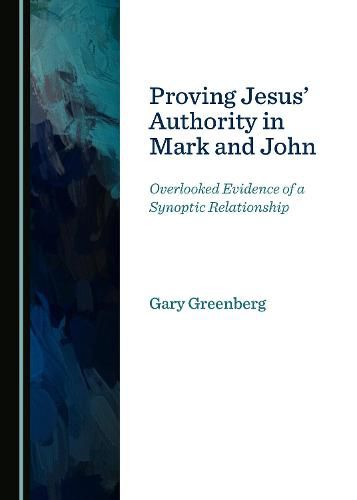Readings Newsletter
Become a Readings Member to make your shopping experience even easier.
Sign in or sign up for free!
You’re not far away from qualifying for FREE standard shipping within Australia
You’ve qualified for FREE standard shipping within Australia
The cart is loading…






This innovative study of the Fourth Gospel introduces important new perspectives on synoptic problems and challenges many theories about the nature of the Gospel of John’s sources and composition practices. Its analysis shows that the author of John knew a written version of Mark’s gospel, had strong theological objections to how Mark depicted the nature and story of Jesus and the gospel message, and composed his gospel as a theologically corrected rewriting of Mark’s, using the latter’s gospel as a narrative guideline for his own composition.By focusing on several seemingly different stories in Mark and John that deal with issues relating to how Jesus proved his authority, the book places each of the incidents in their narrative, sequential, and theological context, demonstrating that John knew Mark’s specific stories in the same sequential order that appeared in Mark, and that John’s stories represented theologically altered rewrites of the ones in Mark. The study examines the nature of John’s objections to Mark, what changes John would want to make to Mark, and the formulaic editorial techniques John used to transform Mark’s gospel into John’s gospel. Of particular interest, it shows how John transformed Mark’s stories about proof through exorcisms into Johannine stories about proof through words.
$9.00 standard shipping within Australia
FREE standard shipping within Australia for orders over $100.00
Express & International shipping calculated at checkout
This innovative study of the Fourth Gospel introduces important new perspectives on synoptic problems and challenges many theories about the nature of the Gospel of John’s sources and composition practices. Its analysis shows that the author of John knew a written version of Mark’s gospel, had strong theological objections to how Mark depicted the nature and story of Jesus and the gospel message, and composed his gospel as a theologically corrected rewriting of Mark’s, using the latter’s gospel as a narrative guideline for his own composition.By focusing on several seemingly different stories in Mark and John that deal with issues relating to how Jesus proved his authority, the book places each of the incidents in their narrative, sequential, and theological context, demonstrating that John knew Mark’s specific stories in the same sequential order that appeared in Mark, and that John’s stories represented theologically altered rewrites of the ones in Mark. The study examines the nature of John’s objections to Mark, what changes John would want to make to Mark, and the formulaic editorial techniques John used to transform Mark’s gospel into John’s gospel. Of particular interest, it shows how John transformed Mark’s stories about proof through exorcisms into Johannine stories about proof through words.